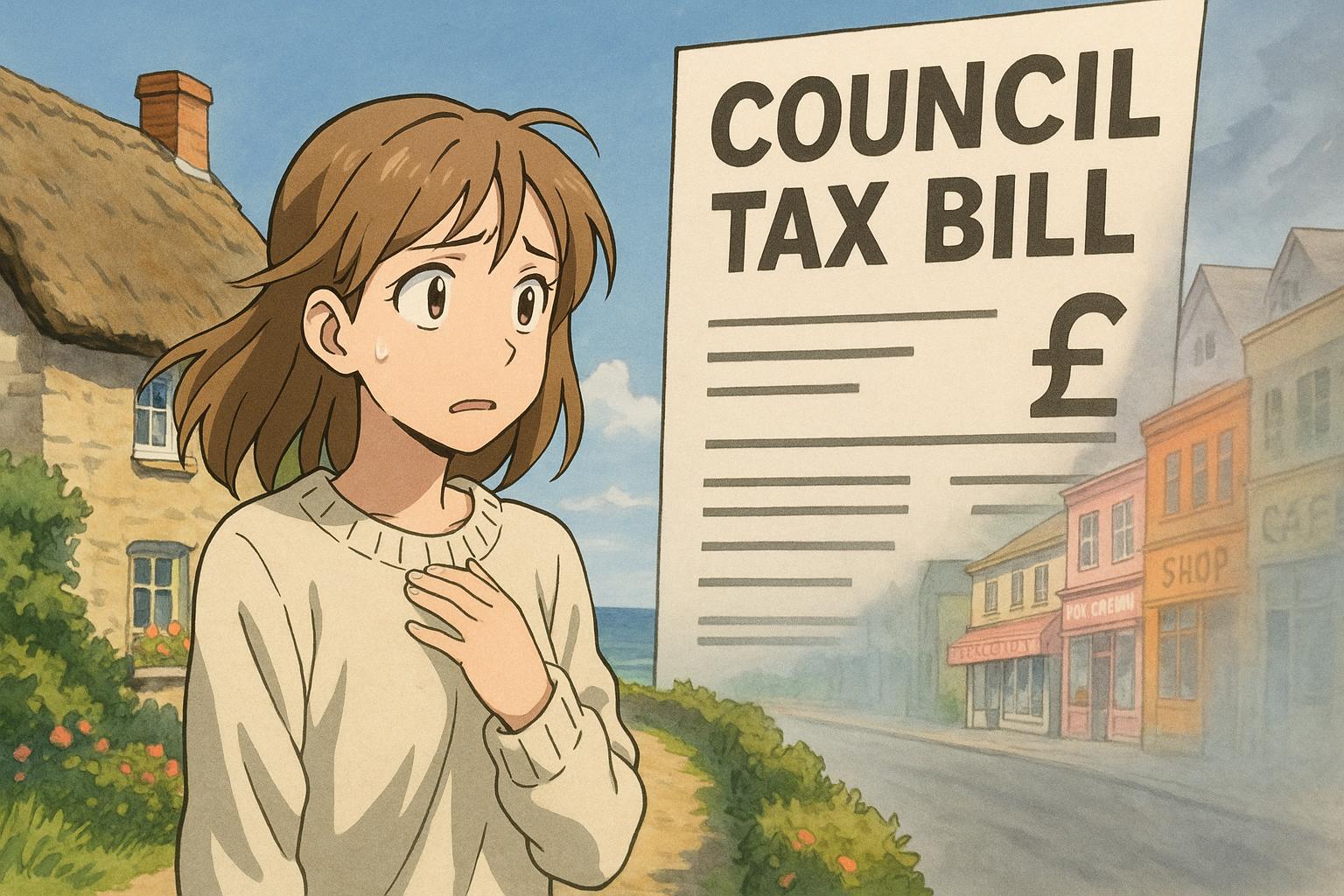The Isle of Wight, a picturesque holiday destination in the UK, is grappling with the economic implications of newly imposed council tax regulations targeting second homes. As of April 2025, owners of additional properties will face a staggering 200% increase in their council tax, a decision made by the Isle of Wight Council with the expectation of raising approximately £4.2 million annually for local services. This move, while aimed at addressing long-standing housing shortages, is already stirring concerns among local residents and business owners about its potential impact on the island's vibrant tourism economy.
Imogen Tew, a resident of the Isle of Wight, articulated the anxieties shared by many locals. In a recent piece for The Telegraph, she expressed fears that the delicate balance between the island’s tourism and resident economy may be at risk. “There is an underlying trepidation that the way the Isle of Wight ticks along is going to change,” she wrote, highlighting worries that independent shops, family-run restaurants, and treasured tourist attractions might struggle to survive as second home owners reconsider maintaining their properties. The shift is particularly concerning, given that many of these owners have long supported local businesses through their spending, often visiting during peak seasons.
Indeed, the statistics illustrate the magnitude of this change. Currently, there are over 2,700 second homes on the Isle of Wight, a figure that contributes significantly to the local economy. The council’s decision to charge a 200% premium seeks not only to generate much-needed revenue but also to address persistent complaints from residents about being priced out of the property market due to the influx of holiday lets. Tew highlighted this dichotomy, noting the irony that while taxes are intended to alleviate local housing issues, they may simultaneously deter a crucial source of income for the island.
Business owners across the Isle of Wight are already bracing for the possible fallout. A gardening company owner lamented that customers may soon begin to cancel services in a bid to cut costs, potentially leading to reduced foot traffic for cafes and shops during shoulder seasons when loyal visitors typically return. This concern is echoed across various sectors of the local economy, with reports indicating a palpable unease among those reliant on the patronage of holidaymakers.
Moreover, the council’s measures extend beyond just taxing second homes, as plans for increased charges on empty properties aim to raise an additional £88,860 per year. While these initiatives are part of a broader strategy outlined in the government’s Levelling Up and Regeneration Bill, which is making its way through Parliament, residents remain sceptical about the long-term viability of such changes. The tenuous relationship between tourism and local business was underscored by one property owner who noted, “We don’t use the local services, no dentists, no GPs, but we support shops, cafes and hire local tradespeople.”
The larger discourse around these tax changes is fundamentally rooted in the struggle of residents to maintain their community. Tew expressed a poignant reality: the island’s tourism economy has historically provided employment opportunities for young locals and offered more affordable access to local attractions and parks. As the landscape of property ownership evolves, many fear the independent businesses that contribute so much to the island's character may soon find themselves at a tipping point.
In summary, while the Isle of Wight Council’s initiative is designed to bolster local services and address pressing housing challenges, the broader implications for the island's economy and community spirit warrant careful consideration. As the local landscape changes, the delicate balance between serving holidaymakers and protecting the needs of residents will be tested, and the outcome remains to be seen.
Reference Map:
Source: Noah Wire Services
